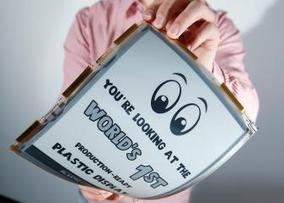More kids getting dry eyes due to electronic gadget use GMA News But if eye conditions such as nearsightedness (myopia) run in the family, bring the child even earlier, Dr. Chan-Uy said, since a high grade of nearsightedness may lead to amblyopia.
No wonder that by the time the kids grow up, most of them need glasses.
Source: www.gmanetwork.com
You see them at fast-food outlets, inside waiting rooms of clinics, outside the boarding gates at the airport, and maybe, even in your own home: children staring intently at a tablet device, a phone, or a gaming device, thumbs and forefingers quick to the draw, so to speak. More and more children are getting into the habit of using electronic devices to play Angry Birds or watch YouTube videos as these gadgets become cheaper and more readily available.
While this development is making kids more adept at technology, there is a downside to it, especially if the gadget use runs up to several hours a day. Health issues may crop up, such as dry eyes.
“With all the gadgets kids use these days, what we noticed now is that more and more children have dry eyes—which was unheard of before,” said Dr. Pik Sha Chan-Uy, an opthalmologist specializing in cataract, retina, strabismus, children’s eye diseases and laser surgery.
“They get red eyes, blink a lot, or get teary eyed… Out of 10 kid patients I get aged 3 and above, about half of them have dry eyes,” Dr. Chan-Uy added.
Using electronic gadgets for a long time can dry the cornea, which is in the front part of the eye. If this gets dry, it can be irritating. A person can experience lots of discomfort, similar to the sensation of having “puwing,” Dr. Chan-Uy told GMA News Online during the launch of Pacific Eye and Laser Institute in Makati on Wednesday.
“It’s a techie world, and both children and adults get exposed to computers and gadgets,” she acknowledged. But that doesn’t mean people should just accept dry eyes as a normal consequence.
“Kids with dry eyes can be given lubricants which are very safe and are not damaging, even if used on a daily basis. Some lubricants are even preservative-free,” said Dr. Chan-Uy, who completed her fellowship program in pediatric ophthalmology and strabismus at the Massachusetts Eye and Ear Infirmary of the Harvard Medical School.
Caring for kids’ eyes
The doctor stressed the need for parents to pay attention to their children’s eye health.
“Young children cannot express themselves; they cannot tell you the problem or complain. But if you don’t catch eye problems early, vision can be impaired. A lot of blindness is preventable,” Dr. Chan-Uy said.
“Some eye conditions are reversible, but only if caught early enough. One of them is lazy eye (amblyopia), where a person cannot see normally even if he has correct eyeglasses. That means the vision did not develop,” she explained.
Vision development occurs from birth to about seven or nine years old, Dr. Chan-Uy said.
She shared some tips for parents on how they can take care of their kids’ eyes:
- If you notice any unusual behavior such as turning of head to one side while watching TV, or repeatedly bumping into objects, or inability to pick up a particular toy, don’t hesitate to bring your child to the doctor.
“We can check children’s eyes, no matter how young the kids are. We can even check babies’ eyes. There is no harm in checking,” Dr. Chan-Uy said.
- Even without symptoms, children should be brought for vision screening test at 3 years old.
But if eye conditions such as nearsightedness (myopia) run in the family, bring the child even earlier, Dr. Chan-Uy said, since a high grade of nearsightedness may lead to amblyopia.
- Try to limit the use of electronic gadgets.
“Like other things, do it in moderation. Don’t do it (watching or using computer gadgets) continuously. What’s not good is staring at a computer for several hours straight,” Dr. Chan-Uy added.
She said it’s better to take a break every 30 minutes—and this is applicable to adults too.
- Give your children a balanced diet.
“Eat more vegetables, especially the dark leafy vegetables and carrots and squash, and fruits,” Dr. Chan-Uy said.
“Vision is our most important sense,” said Dr. Harvey Uy, medical director of Pacific Eye and Laser Institute.
And good eyesight starts with proper eye care, even at a young age, he stressed.
Like this post? Subscribe to my RSS feed and get loads more!


Leave a Reply
You must be logged in to post a comment.